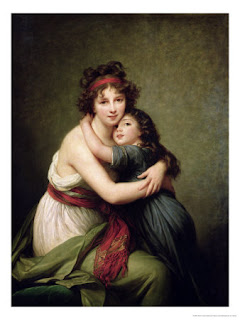I Long For More
It was a rainy Saturday afternoon. Fat, melancholic clouds lumbered slowly across the sky. The swirling summer breeze seemed to carry with it a restlessness that had me pacing about the house in search of some pleasant diversion.
Oddly, there wasn't a book in my vast library that could hold my interest, nor did I feel like working on my novel.
My soul yearned for that which I could not express. Escape, perhaps.
I decided to escape to 16th century Venice, an exciting locale filled with gorgeous courtesans, corrupt noblemen, religious zealots, diabolical intriguers, and lavish soirees.
I watched Dangerous Beauty, a biographical movie about Veronica Franco, a sixteenth century Venetian courtesan and poet who charmed a legion of men with her wit and beauty.
In the movie, young Veronica falls in love with Marco, a dashing young man from a noble family. As Veronica is without a dowry, Marco is forced to set her aside in favor of a politically and financially advantageous marriage. Heartbroken, and with no other acceptable course open to her, Veronica becomes a courtesan. Her beauty, charm, and ability to pen a clever verse soon make her the most sought after woman in Italy.
I don't wish to spoil the movie for my readers who have not yet seen it, but I will say that it is a sweeping romantic story. The perfect escape on a dreary, melancholy day.
 The real Veronica Franco was the daughter of a minor, impoverished nobleman and a former courtesan. She received a superlative education and showed an early aptitude for writing and painting. When she was a young girl, she married a man she did not love. She became a courtesan after her husband's untimely death, charming many men (including France's King Henri III) with her sharp repartee and dazzling beauty.
The real Veronica Franco was the daughter of a minor, impoverished nobleman and a former courtesan. She received a superlative education and showed an early aptitude for writing and painting. When she was a young girl, she married a man she did not love. She became a courtesan after her husband's untimely death, charming many men (including France's King Henri III) with her sharp repartee and dazzling beauty.
However, it wasn't all silken sheets and chocolate-dipped strawberries. Veronica was forced to flee Venice during a virulent Black Death outbreak. When she returned, she discovered her home had been looted and vandalized and that she would be brought before an Ecclesiastical Court on the charge of witchcraft.
They say the true measure of a person can be found in their actions while suffering adversity. Veronica did not fold, nor lash out. Veronica bravely fought the charges and was exonerated. Then, she opened her home to discarded courtesans and their children.
She also wrote poetry.
Beautiful, soul-stirring poetry that speaks to the hearts of women. Over four hundred years later, women can identify with the themes found in her prose: the desire for equality, and the destructive and restorative powers of love.
Here is one of her poems:
I find myself within his eyes,
I long for more of myself to know.
He hears, it seems, my silent cries
And makes my heart my reason's foe.
How can this be, to love so quickly?
"Love does not wait," is his reply.
What magic weaves
his touch to trick me?
How can I now my love deny?
I admire Veronica Franco her passion and her ability to touch a reader's heart with her powerful, frank prose. As a writer and a woman, I could hope for little more.



Comments